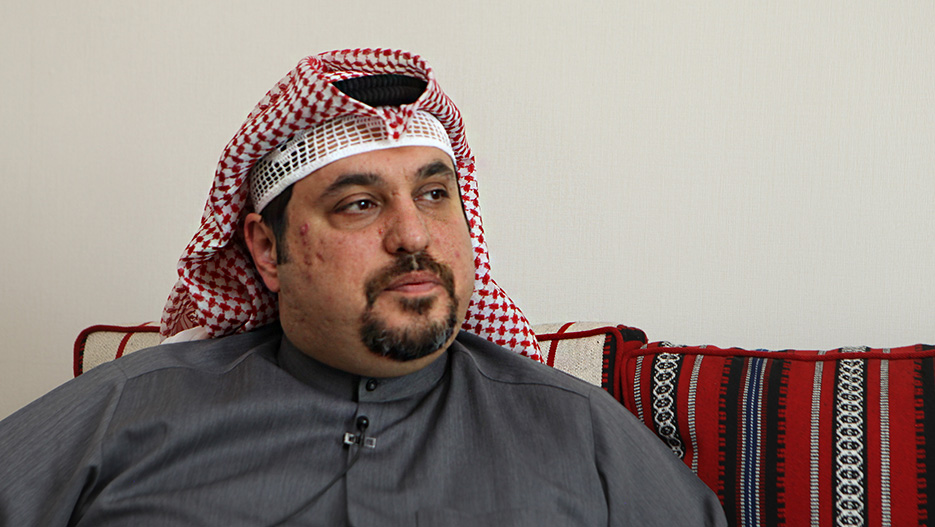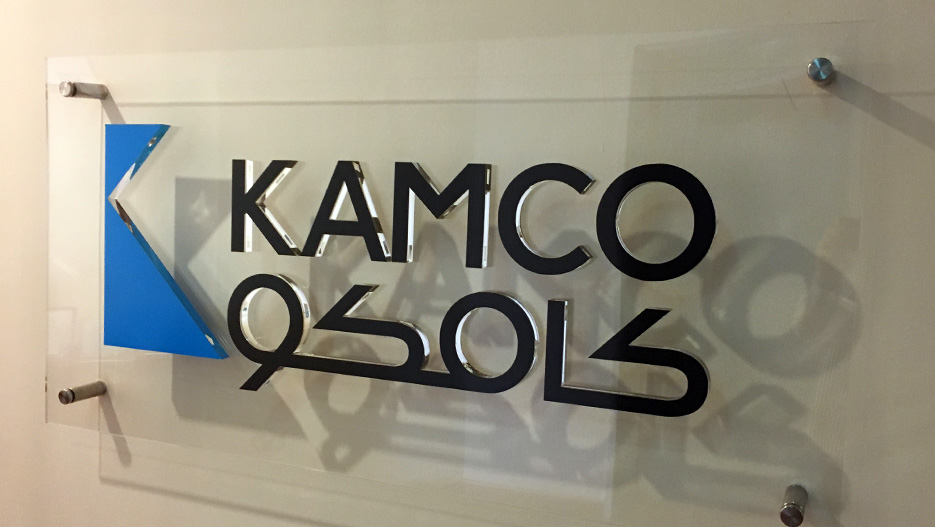No. 1 Real Estate Fund in the Middle East | Exclusive Interview with KAMCO
“In our sector, the investment sector, and through being a specialized, client-driven, asset management investment bank, our focus is on building and continuing to maintain our strong leadership position. Part of that is the trust that is bestowed upon us by our clients and our various stakeholders.”
Interview with Faisal M. Sarkhou, CEO of KAMCO

What is your overview of the capital market in Kuwait? What are the trends and where is the market heading?
February 2017 was one of the best months for the capital market since 2013. Kuwait was among the top internationally, in terms of increase and performance. 2016 was a difficult year for the capital market, with the large cap companies suffering more, while the small cap companies did better. 2016 also followed a poor 2015. In essence, we have had almost a year and a half to two years of poor capital markets. This bottleneck effect has changed since the start of 2017. We see the capital market improving again, and that is due to a number of factors.
To what specifically do you attribute this top market performance?
After two years, similar markets in the region have been performing better, as well. This is following the government’s large capital expenditure plan which is still ongoing, following more stability in the oil sector and the oil prices, which has stabilized supply and demand, accordingly. Further to that, the Capital Markets Authority and regulations have been evolving with better transparency and better corporate governance. There is a push to take Kuwait from frontier market to emerging market status. Pakistan recently achieved this, making Kuwait more visible in the frontier market category. The Authority is supporting this move by using its regulations to develop the Boursa, or the Kuwait Stock Exchange, and by introducing new products and services. Kuwait’s economic position is quite strong. It is a highly-rated country with minimal debt on its books. A number of factors have played in order to make this market have a return of confidence into it.
In our actively managed funds, four are top performers and have beaten their benchmarks, and all are in the top three in their category rank.
Do you think the Capital Markets Authority is doing enough to re-establish Kuwait as a new or a renewed financial center in the region?
They are introducing many initiatives and activities to develop this market and its players. Part of that is educating investors and companies. That drive is starting to show some results. There is still more to be done. We expect their efforts towards establishing Kuwait as a more efficient market with more depth and breadth to continue. The results could mean the elevating of Kuwait’s capital market status.
Which sectors do you see as having the highest growth potential in 2017?
In an economy like Kuwait, you must always consider what the government is doing. The government and its activities constitute over 90 percent of the economy. In the past decade, the government has increased spending on salaries, which has given more consumer strength into the market. It has initiated a significant infrastructure development and drive the last three to four years which is meant to be trickling down to the private sector. The private sector is also having an increased play into the activities there. Accordingly, the sectors affected are those that are involved more with infrastructure development, for example, infrastructure specialized companies, construction companies, and contracting. The defensive sectors were popular while the capital market was a bit slow, for example health care and education. There is still an investment space into that field. The banks will also benefit. They are a significant contributor to the infrastructure spending that is ongoing.

Among all this, how is KAMCO maintaining its leadership position in the capital market here in Kuwait?
In our sector, the investment sector, and through being a specialized, client-driven, asset management investment bank, our focus is on building and continuing to maintain our strong leadership position. Part of that is the trust that is bestowed upon us by our clients and our various stakeholders. We have been paying dividends over the past three to four years. We have been focusing on core activities in asset management and investment banking. Over the past year, we maintained one of the highest assets under management bases in the region, with over 11 billion USD under management. On the financial services side, we completed investment banking deals worth one billion dollars in 2016. It has been a good year for us. Our activities last year ended with us launching a new fund, the Islamic Global Equity Fund, which is now under fundraising in early 2017. We always want to increase the innovative aspect of our product range and services. When we looked at our product line, we saw that as a reputable asset manager, we were missing an Islamic piece to our product range. We did a significant amount of research, development, and discussion, and we came into agreement with a reputable international asset manager named Wellington. They had a strategy which we approved and wanted to replicate into a Kuwait based fund. Wellington had launched their own product in 2010, almost seven years of operation, with an annualized return of over 12 percent. This fund has gone through some difficult times in global equities, and it still is performing well above benchmarks. This is one of the key reasons why we decided to partner with Wellington. We see that there is a gap to international investing. We are MENA focused, but some of our investors would like to have access to international global markets. The debt levels of the companies involved in the Islamic Fund are quite low. These companies are more involved with the ethical side. The Fund covers several aspects that we see fit for our investor base.
Kuwait has comparatively little debt. In the past, the country retained zero debt, but that has increased in the last two years. Is this a major challenge?
Kuwait faces many challenges. Through reform, the Kuwait market and the economy can become stronger and better. The starting point is that the country is flush with liquidity. The need for debt is not immediate, but having debt on your books is sometimes a good thing. When you have debt, you start to look at the cost of your money and you start to focus on returns on your investments more. Kuwait must reform the economy, moving away from the public sector and into the private sector, as well as moving away from an oil based economy to a more diverse economy that can attract foreign direct investment. Kuwait must reform its public sector in terms of pay scales, the inefficiencies that are transparent, and moving the country to higher ranks regionally and internationally. Those reforms have begun. They were triggered by the fall of the oil prices. The balancing oil price for Kuwait is the lowest in the region. A key reason for this is that the country has been lagging on infrastructure spending. There is a great need for investment in infrastructure spending to renovate the country’s infrastructure, education system and health care system. In 1990, Kuwait had a population of less than one million people. Twenty-six years later, the population has increased fourfold. The infrastructure changes are quite needed, but this comes with challenges because you must revamp the efficiency of the government and how it works. The debt that is taken needs to also cover the shortfall in the annual budgets. The issue with borrowing will help in the short-term budget shortfalls that are expected but are also coming more as a natural side of the country’s balance sheet as we move forward.
One of KAMCO’s major achievements of 2016 was your official establishment in Dubai. What is your current regional expansion strategy?
When we first started in 1998, our products and services were focused purely on Kuwait. With time, we grew our client base and our assets under management many times over. In the past five years, we made a conscious decision to start launching projects that invest regionally and internationally. We launched a real estate fund and a new fixed income fund, both in dollar terms, we strengthened our Kuwait Equity Fund, and we launched a GCC Equity Fund. Our investments, our clients’ investments, and the assets under management side grew beyond Kuwait. We saw that the opportunity for us to expand was there. We looked throughout the region and we decided to establish an office which would act as a hub for us in Dubai. KAMCO DIFC was licenced in 2016. We are now growing the operations there and increasing our footprint through our UAE Dubai DIFC office. We believe we have a good story to tell. In our actively managed funds, four are top performers and have beaten their benchmarks, and all are in the top three in their category rank. Our real estate fund is first or second in the region.
We also have opportunities that we have looked at beyond the region. In 2016, we acquired a prime real estate property in Cincinnati in the USA. It was one of five operation centers for GE, housing a senior executive plus two thousand team members in a state of the art building. So, we do invest out of the region, but on a selective basis. That will continue, depending on the opportunities that are presented to us.
How do you project KAMCO in the medium term of two years’ time, if everything goes well?
Every year, it is very important for us to make a five-year plan. In the coming two years, key elements of our plan are to continue to grow our quality assets under management while continuing to focus on growing our funds under management. We must be conscious of the fact that the region is still very nascent in this field compared to international markets. We expect and we hope for the professional asset management services sector to grow and we will focus on growing our share in that piece in the region, accordingly. We will continue to grow our investment banking activities and transactional capabilities across the region, cross-fertilizing our international track record with our local capabilities. We will also focus on enhancing our interface with our clients, through which technology will play a major role. The future will be better for investment firms and service providers who are focused on achieving a sophisticated level of product and service delivery.
FAIR USE POLICY
This material (including media content) may not be published, broadcasted, rewritten, or redistributed. However, linking directly to the page (including the source, i.e. Marcopolis.net) is permitted and encouraged.